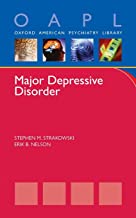Major Depressive Disorder
Cluster Number:
Wiki Number: PW115
Diagnosis: Major Depressive Disorder
US Patients:
World Patients: 163 Mil; 2% of world population
Sex Ratio: M;W2
Age Onset: 20s-30s; The average duration is 23 weeks, with three more during lifetime. ½ of patients will not have another episode.
Brain Area: 102 variations in the genome linked to depression; There is an extensive description of possible brain affects on depression.
Symptoms: Has at least two weeks of depressive mood; inability to enjoy pleasure; rumination; reduced sex drive, insomnia and hypersomnia
Progression: weight and appetite may be low; fatigue, social withdrawal, suicidal thoughts; delusions or sometimes hallucinations
Causes: 40%-hereditary; response to stressors, childhood abuse. The article claims general physicians miss 2/3 of depression diagnoses.
Medications: Antidepressants-for the deeply depressed; electroconvulsive therapy
Therapies: Counseling; transcranial magnetic stimulation, light therapy, exercise, light therapy,
Youtube Video: Major Depressive Disorder
Amazon or Library Book: Major Depressive Disorder
Click the book to link or order from Amazon.

